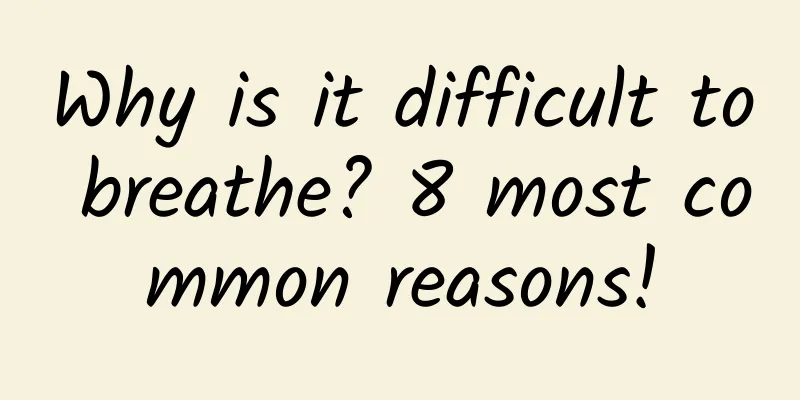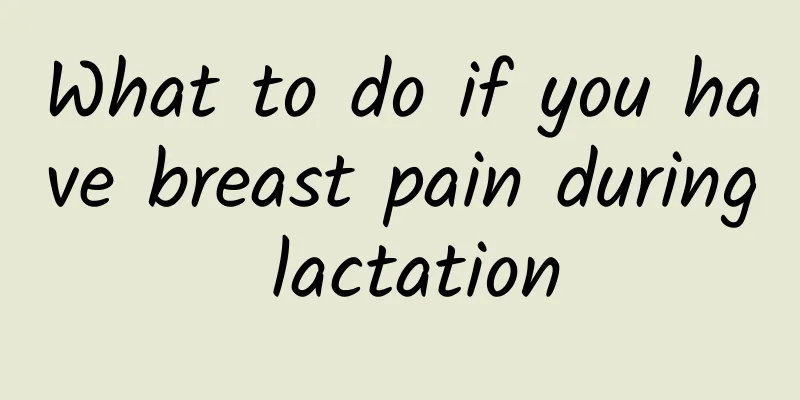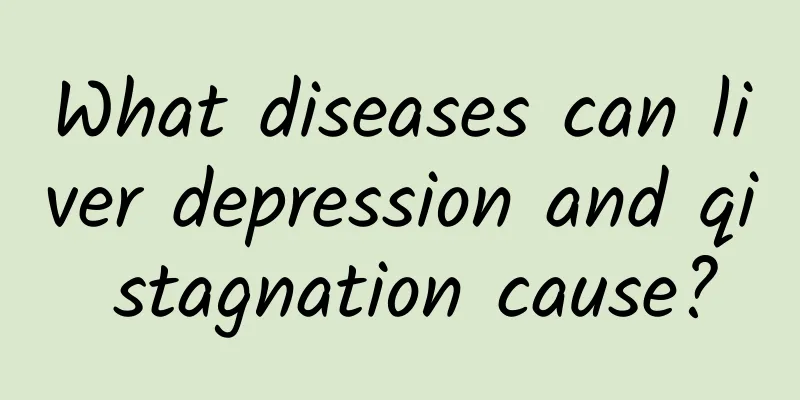Why is it difficult to breathe? 8 most common reasons!

|
Sometimes people suddenly have difficulty breathing. For example, when a person is anxious for a long time, they will find that breathing becomes much more difficult. In addition, many diseases in the body can also cause symptoms of difficulty breathing. Therefore, when you encounter this situation, you must pay attention to it and treat it symptomatically after finding the cause. The most common causes are as follows: 1. Fever When you have a fever, your body's metabolic demands increase and it needs more oxygen. Breathing harder may help get more oxygen in, but it also helps release heat and lower your body temperature. People with a fever may feel short of breath or have difficulty breathing, especially during activity. As long as the symptoms ease after a few deep breaths and a few minutes of relaxation, there is no need to worry. However, if breathing difficulties worsen or are accompanied by symptoms such as dizziness or impaired consciousness, medical help should be sought. 2. Disease or infection Many infections can cause breathing difficulties, leading to shortness of breath. In most cases, such infections are mild. However, if symptoms are severe, accompanied by a high fever, or do not improve within a few days, medical help should be sought. Some infectious causes of breathing difficulties include sinus infections, the common cold, flu, bronchitis, and pneumonia. 3. Cardiovascular health issues Cardiovascular health issues are one of the main causes of breathlessness and shortness of breath, especially when symptoms persist for several days. When the heart cannot pump oxygen-rich blood to the muscles and organs, the body experiences difficulty breathing and shortness of breath. People with a history of heart disease or risk factors for cardiovascular disease (smoking, obesity, high blood pressure, or high cholesterol) should seek medical help if they experience difficulty breathing. 4. Lung health issues The lungs and heart work together to supply blood to the muscles and organs. Lung problems can cause breathing problems. If breathing difficulties do not improve after a few days, you should see a doctor. If shortness of breath is severe, worsens rapidly, or is accompanied by other symptoms such as a rapid heart rate, seek medical attention immediately. Some common causes of pulmonary breathing difficulties include asthma, COPD, pulmonary embolism, blood clots, lung cancer, and lung infections. 5. Respiratory system obstruction If foreign objects are inhaled into the lungs, it may cause breathing difficulties. It is also possible that foreign objects are present in the airway. Medical help should be sought promptly. Airway obstruction may also be accompanied by symptoms such as wheezing, fever, dizziness, and burning sensation in the throat or chest. 6. Dehydration Dehydration can cause changes in breathing as the body works to supply cells with the energy they need. When the body does not have enough water, it can become dehydrated, and some medications can also cause dehydration. It is especially common in summer. When dehydration occurs, try to drink a glass of water, take deep breaths, and rest in a cool place for 1 to 2 hours. If the symptoms do not improve, seek medical attention immediately. 7. Anxiety You may have trouble breathing during anxiety. Anxiety can cause irregular breathing, and irregular breathing can trigger more anxiety. Anxiety breathing problems can feel like breathing is labored, your breaths are rapid, and you don't seem to be getting enough oxygen. People with a history of cardiovascular disease or risk factors for a heart attack should see a doctor, even if they think their symptoms are caused by panic. Anxiety is not a medical emergency, and psychotherapy can help. 8. Allergies Allergies, especially respiratory allergies such as pollen or dust, may cause symptoms such as wheezing, labored breathing, burning sensation in the lungs or throat, watery eyes, and itchy skin. You can try to avoid contact with the allergen. If symptoms do not improve or worsen, seek medical attention. If labored breathing progresses to difficulty breathing, seek medical attention immediately. |
<<: These are the common early symptoms of vasculitis!
>>: What are the methods of whitening and removing freckles with traditional Chinese medicine?
Recommend
How long does it usually take to treat facial paralysis? How is it generally treated?
Many friends don’t quite understand facial paraly...
The effect of white head
Many plants have multiple names, especially in di...
How to use chlorine disinfectant tablets
Chlorine-containing disinfectant tablets are quit...
What is the best way to wash your face when it itches?
Itchy face is most likely caused by skin allergie...
Symptoms of thyroid disease
Thyroid disease in life is mainly caused by a lac...
Forty-seven-year-old menopause
When women enter menopause, their tempers become ...
What does pelvic floor effusion mean?
As people's health awareness improves, many p...
The efficacy and contraindications of Aigen
Artemisia argyi root is the root of the Artemisia...
The efficacy and function of light bamboo leaves
Bamboo leaves are not only pleasing to the eye, b...
What are the transmission routes of viral herpes and what should we pay attention to?
In life, herpes is a highly contagious and highly...
What is headache and tinnitus?
Headaches and tinnitus are quite common in life, ...
Why does it hurt when I press my breasts?
For women, if there is tenderness on both sides o...
Will appendectomy recur?
Although appendicitis is a very common disease am...
Heart rate and morning pulse
We all know that a person's heart rate is dif...
What is stomach pain after meals?
For humans, eating and sleeping are important way...









